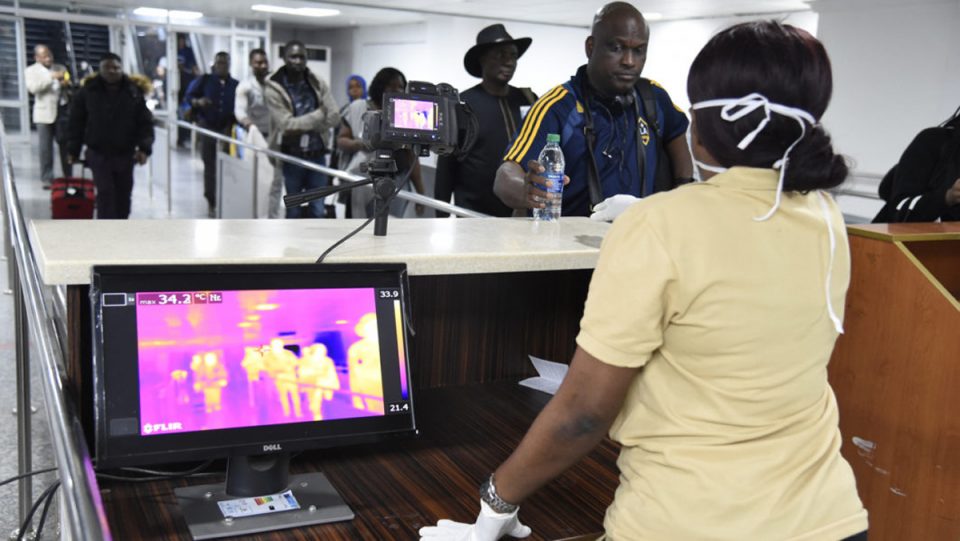Stakeholders in the maritime industry have said that the government should not be involved in the procurement of port scanners but should leave such business to private operators.
In an interview with our correspondent, the National President of the National Association of Government Approved Freight Forwarders, Dr Increase Uche, said that the government should have no hand in the provision of port scanners.
Uche said, “If government again is trying to bring in the scanners we will just end up back where we were before. As at the time scanners were handed to Customs around 2013, these problems started.
“They couldn’t handle the scanners; nobody was maintaining the scanners. There was no supervision. “Government should not get into that business anymore; let the terminal operators be mandated to provide scanners.
“It’s not proper for the government to fix scanners. Globally what is acceptable is terminal operators provide the handling and verification. The MPS in Ghana provided scanners, weighbridges and all that.
“Moreover, what is required is Radio Frequency Identification Devices that give accurate results of what is contained in a container. Some of the advanced countries like in Rotterdam Port, Port of Antwerp and so on have these in place.
“The maintenance of the scanners will be included in the terminal handling charges. The terminal operators will assist Customs officials in doing their jobs. Customs officers cannot handle the scanners.”
He said, “Once a container lands at the port, at the time you want to redeem the container, so long as proper documentation has been done, they will load the container on the dock and then it passes through the scanning machine.
“If the container is scanned for delivery, and they discover some discrepancies, that is when the container may be subjected to questions and transferred to another area for further examination.
“We don’t need to start doing pre-scanning, positioning of containers for examination and all that because space maximisation and optimisation must be put in place so that terminal operators will not be encumbered.
“The lack of space is what is choking the environment and causing the congestion that we always have at the port terminals which spills over to the port access roads. We don’t need to drop containers on the ground for examination at all; that’s part of what is killing the ports.
“For those delays that start with dropping containers, coming to intervene, coming to write reports; it is useless. These are areas that cause delays that will lead to the accumulation of demurrage and storage charges on the container and thereafter transferred to the final consumer.”
The President, Shippers Association, Lagos State, Mr Jonathan Nicol, echoing the problem of delay at the ports said that while scanners were meant to reduce physical examination, Customs officials still kept containers waiting, insisting on conducting manual searches.
Nicol said, “Nigerian Customs said they are bringing scanners and scanners are beginning to arrive at the ports. The purpose of scanning is to reduce physical examination of cargo.
“However, even if the scanner says the container is 100 per cent okay, they will still insist on opening that container.
“Once the scanner goes green, that container should not even spend two hours in the port. We will make sure that all green containers leave the ports whether Customs like it or not because we are fed up.”
Nicol also called for private management of scanners rather than through Customs to improve their efficiency.
He added, “When the scanners come, you know Nigeria is battling maintenance culture. It is better we use private groups to manage scanners and get them to operate the scanners for the government.
“If it is the Nigerian Customs Service, then I’m afraid it might not last because they don’t have a maintenance culture.”
Meanwhile, the Nigerian Customs Service has said that it will soon deploy scanners at its ports to tackle the issue of congestion caused by manual process of clearance.
The Public Relations Officer, Joseph Attah, who disclosed this in an interview with our correspondent said that the service had earlier ordered for three scanners, one of which arrived recently and would be deployed at the Onne Port in Rivers State, after the necessary checks have been conducted on the device.
He added that the two other scanners which were designated for the Apapa Container Terminal and Tincan Port in Lagos state would soon arrive.
He said, “Any moment from now, the scanners will arrive. We are expecting three scanners; one will be in Apapa, another in Tincan and one in Onne.
“I can confirm that the one for Onne has arrived and that of Apapa will soon be here too.”
He added that the one for Onne which had arrived was being examined and would soon be deployed.




